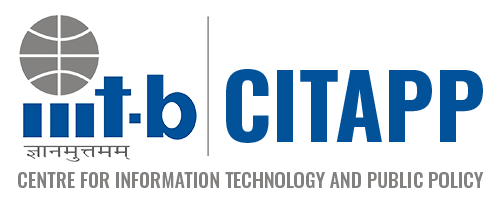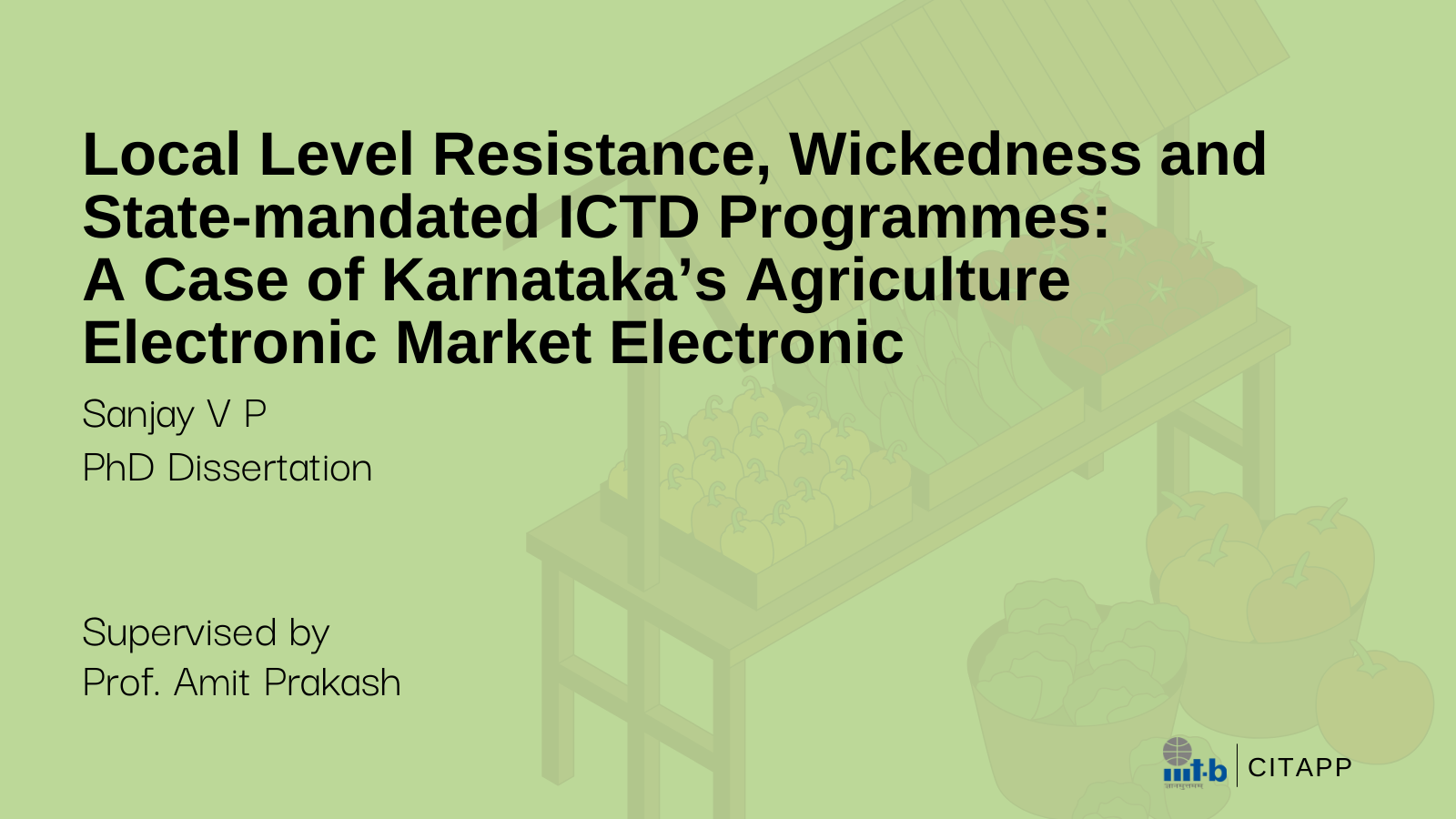Sanjay VP, a PhD scholar from the Department of Digital Humanities and Societal Systems (DHSS), recently defended his thesis titled: Local Level Resistance, Wickedness and State-mandated ICTD Programmes:A Case of Karnataka’s Agriculture Electronic Market Electronic. In his thesis, Sanjay draws from his extensive fieldwork covering the practices of both traditional markets and e-markets n Karnataka, India. His research is a scholarly deep dive into the role of local intermediaries in the implementation of state-powered ICTD interventions.
Abstract:
This dissertation critically examines how state-mandated Information and Communications Technology and Development (ICTD) programmes affect problem resolution within complex societal systems, prioritising the perspectives and practices of local stakeholders. Departing from the techno-deterministic assumptions often underpinning large-scale ICTD initiatives, the study investigates how local actors perceive and respond to state-driven narratives of transformation and progress. Employing an interpretive research approach, the dissertation presents a case study of a state-supported ICTD programme in Karnataka, India, aimed at transforming traditional agricultural markets into an electronic platform (E-market). The fieldwork, spanning 24 months, involved participant observation and semi-structured interviews with 99 farmers, market actors, and local officials across 18 agricultural markets.
The analytical framework draws upon Scott’s work in counter-discourse and related resistance studies in a complementary manner with wicked problem lens conceptualised by Rittel and Webber. The counter-discourse lens helps to situate the issue in the dissonance between state and local, becoming a scaffold for a two-pronged analysis in the next stage. The first prong uses Scott’s resistance theory to posit that the state’s focus on economic and efficiency goals, neglecting the local relationships, knowledge, and interwoven practices, gives rise to everyday forms of resistance, such as foot-dragging, false reporting, and false compliance, creating a picture of ‘cosmetic compliance.’ Such cosmetic compliance gives an impression of a successful initiative to the distant state, even while the ICTD programme experiences abysmal levels of adoption in practice.
In the second prong, addressing the inherent complexity of the societal system, characterised by conflicting interests, knowledge fragmentation, and power asymmetries, the dissertation employs the wicked problem lens, operationalised via a two-level analytical framework. Analysis shows that due to the specific approach of the state, the ICT-enabled programme has a dual effect of exacerbating pre-existing traits of wickedness, intensifying distrust, uncertainty, and entrenched divergence, and giving rise to new traits like acts of resistance. Further, resistance acts may be generalised as not just actions to preserve and sustain local agency; they are integral to the evolving and self-adaptive nature of wicked problems.
The study underlines the vital importance of incorporating local contexts, knowledge, and practices into ICTD initiatives. It provides valuable insights for policymakers and designers on potential pathways for addressing issues in societal systems displaying traits of wickedness. For ICTD programmes like E-markets to succeed, the state must actively consider the local actors as vital epistemic entities and integrate locally valued practices into technology design and implementation strategies.
Key Words: Agriculture Markets, State-Mandated ICTD Programmes, E-markets, Intermediaries, Everyday Resistance, Cosmetic Compliance, Counter-Discourse, Power Asymmetries, Local-Level Practices, Wicked Problems, Epistemic Preferences.

